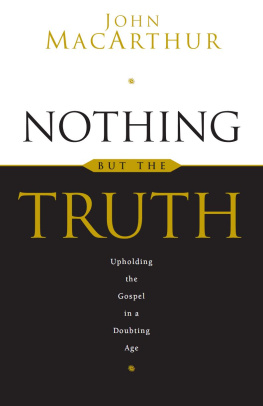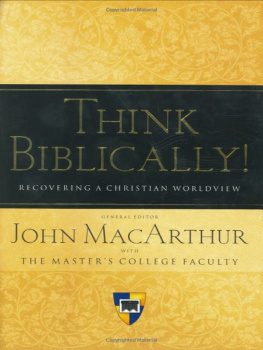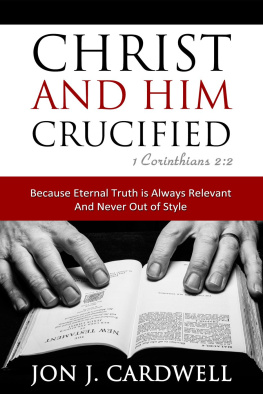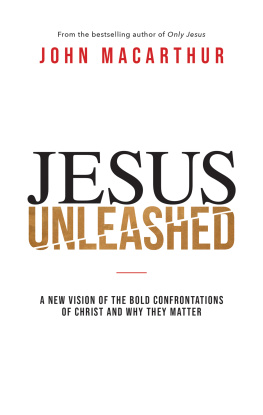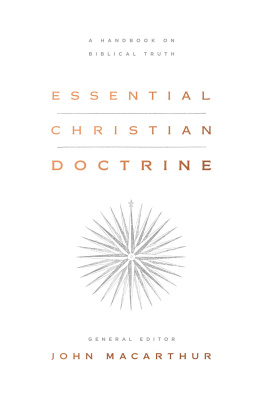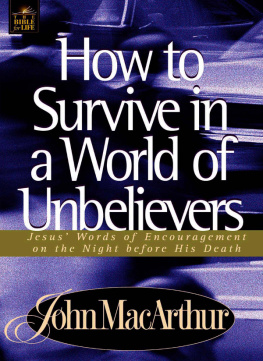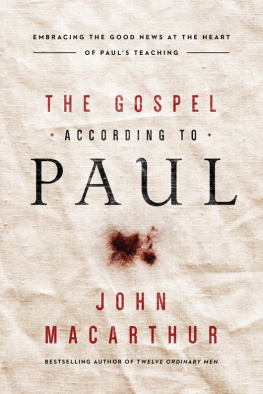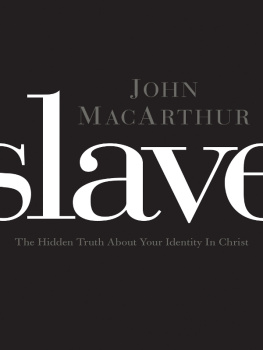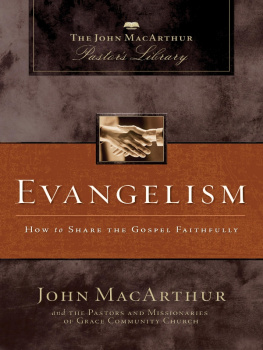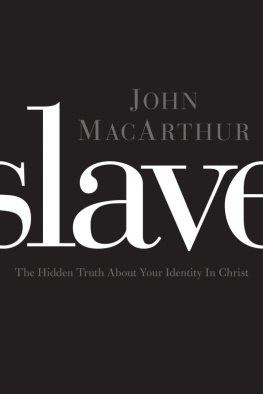Copyright 1999 by John F. MacArthur
All rights reserved. No part of this publication may be reproduced, stored in a retrieval system, or transmitted in any form by any means, electronic, mechanical, photocopy, recording, or otherwise, without the prior permission of the publisher, except as provided for by USA copyright law.
Library of Congress Cataloging-In-Publlcation Data
MacArthur, John, 1939
Nothing but the truth : upholding the Gospel in a doubting age /
John F. MacArthur, Jr.
p. cm.
Includes bibliographical references and indexes.
ISBN 13: 978-1-58134-090-7 (pbk. : alk. paper)
ISBN 10: 1-58134-090-7
1. Witness bearing (Christianity) 2. Evangelistic work.
3. Apologetics. I. Title.
BV4520.M23 1999
248'.5dc21 99-37022
VP 17 16 15 14 13 12 11 10 09 08
16 15 14 13 12 11 10 9 8 7 6 7 6 5 4
Being a witness to the Gospel in our day and age is becoming increasingly difficult. As the world rushes into and enters a new millennium, evangelical Christianity has reached a crossroads, especially here in the United States. After being influenced for some 150 years with strong biblical Christianity, our country has been rapidly declining, especially during the last half of the twentieth century and moving into the twenty-first. Practical atheism and moral relativism have dominated our society in recent decades. For the most part the few vestiges of Christianity still reflected in our culture are weak and compromising. Although many parts of our culture still wear some sort of religious mask, in reality it is largely pagan.
For a brief period, the spiritual revival of the 1970s that swept across the campuses of many colleges and universities seemed to promise a new day of blessing. Mass baptisms were conducted in rivers, lakes, and the ocean. Several new versions of the English Bible were released. Christian publishing and broadcasting experienced remarkable growth. Certainly an undeniable wind of the Spirit was blowing.
But that evangelical revival soon slowed and was overshadowed by the greed and debauchery of the eighties and nineties. From government leaders and celebrities right on down to average people, much of society became openly disparaging of biblical standards of morality and of Christianity as a whole. As a result, America adopted not only a non-Christian but a distinctly anti-Christian stance and agenda, with the state often encroaching on religious freedoms, instituting policies that are blatantly anti-Christian.
Understandably, evangelicals became resentful of this secular trend, appalled that biblical standards of ethics could be so blatantly rejected while vulgarity, profanity, and blasphemy were not only condoned but admired. In reaction, many well-meaning Christian leaders founded organizations to counteract such anti-Christian inroads. They declared war on the prevailing secular culture, especially on the liberal national media. This culture war has been essentially an effort to moralize the unconverted. But the end result of such an approach is that many Christians became hostile to unbelieversthe very ones God called them to love and reach with the Gospel.
At the beginning of 1999, a major battle in the culture war took place. The Bill Clinton impeachment hearings, conducted by the highest level of leadership in our nation, were in reality a referendum on the culture war. But what began as outrage against immorality, deception, and abuse of power ended rather abruptly without any punishment or even censure.
May I suggest that the culture war, at least as we know it, is now over. The impeachment process gave us a clear indication of where our culture standsand we have discovered that it refuses to follow a biblical morality. The culture war is overand weve lost. That was the inevitable end because this world is the domain of darkness, whether its portrayed as moral or immoral. Our responsibility has never been to moralize the unconverted; its to convert the immoral. Our responsibility is redemptive, not political. We do not have a moral agenda; we have a redemptive agenda. We cant reform the kingdom of darkness that Satan rules.
The cause of Christ cannot be protected or expanded by social intimidation any more than by government decree or military conquest. Ours is a spiritual warfare against human ideologies and beliefs that are set up against God, and those can be successfully conquered only with the weapon of the Word of God (see 2 Cor. 10:3-5). We can change society only by faithfully proclaiming the Gospel, which changes lives from the inside out.
The single divine calling of the church is to bring sinful people to salvation through Christ. If we do not lead the lost to salvation, nothing else we do for them, no matter how beneficial at the time, is of any eternal consequence. How to go about doing that is what this book is about.
In the first century, Christians faced a much more antagonistic culture than ours. They lived in a world of murderous tyrants, gross inequality and injustice, and sexual looseness and perversion. The apostle Peter knew how difficult it was for believers, especially new converts who were being persecuted for their faith, to face such a culture. Thats why he described them as aliens and strangers (1 Pet. 2:11). They were like foreigners living without a permanent home or citizenship. That is also our standing, and we need to have that perspective when interacting with a culture that will become increasingly hostile to our faith.
To encourage all believers in such circumstances, Peter wrote, Keep your behavior excellent among the [unsaved], so that... they may on account of your good deeds, as they observe them, glorify God in the day of visitation (v. 12), and so by doing right you may silence the ignorance of foolish men (v. 15). We silence our adversaries by disproving their accusations and doing rightby living godly lives. Thats our most effective tool for evangelism. Scandalous conduct fuels the fires of criticism, but godly living extinguishes them.
But along with that, Peter also encourages believers to always be ready to make a defense to every one who asks you to give an account for the hope that is in you, yet with gentleness and reverence (1 Pet. 3:15). When society attacks, we need to be prepared to make a defense.
The Greek term translated defense often speaks of a formal defense in a court of law. But the apostle Paul also used the word in the informal sense of being able to answer anyone who questioned him (Phil. 1:16-17)not just a judge, magistrate, or governor. Furthermore, always in 1 Peter 3:15 indicates that a believer should be prepared to answer in all situations, not just in the legal sphere.

